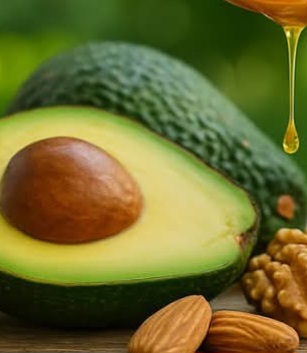As we age, taking care of our heart becomes more important than ever. While medication and regular checkups are essential, what we eat every day plays a powerful role in supporting heart health. For seniors, especially, the right food choices can help manage blood pressure, cholesterol, and energy levels—all of which contribute to living a longer, more active life.
If you’re looking for a simple change that can make a big impact, consider starting with one humble food: oats. Long recommended by health professionals, oats are an affordable, accessible, and effective ingredient that may help protect your heart naturally.Let’s explore how oats work, why they’re so beneficial, and how seniors can easily enjoy them in daily meals.Why Heart Health Matters More After 60Heart disease remains the leading cause of death among older adults in the U.S., according to the Centers for Disease Control and Prevention (CDC). While genetics and other factors play a role, lifestyle habits—like diet and activity—are within our control.Common heart health concerns in seniors include:High blood pressureHigh LDL (bad) cholesterolArterial plaque buildupReduced circulationInflammationThe good news is that many of these concerns can be supported through healthy eating patterns. And one of the easiest places to start is with breakfast.Oats: A Heart-Smart Superfood for SeniorsOats may seem ordinary, but they pack a powerful nutritional punch—especially when it comes to heart health.Here’s why oats are so effective:Rich in soluble fiber: The beta-glucan in oats helps reduce LDL cholesterol by forming a gel in the gut that traps cholesterol and helps remove it from the body.Support healthy blood pressure: Oats are naturally low in sodium and may help support better circulation.May improve insulin sensitivity: Balanced blood sugar levels contribute to heart health, especially for those managing type 2 diabetes.Help reduce inflammation: The antioxidants in oats, including avenanthramides, may help lower inflammation levels.According to the American Heart Association, a diet that includes oats may contribute to lowering cholesterol levels, which is a major factor in reducing heart disease risk.How to Eat Oats for Maximum Heart BenefitsOats are incredibly versatile and easy to prepare. The key is choosing whole oats and minimizing added sugars or processed toppings.Best types of oats:Steel-cut oats: Least processed, hearty texture, slow to digestRolled oats (old-fashioned): Flattened and slightly processed, quicker to cookQuick oats: More processed but still beneficial when unsweetenedAvoid flavored instant oat packets with added sugars or artificial ingredients.Heart-healthy oat recipes for seniors:Classic oatmeal: Cooked in water or low-fat milk, topped with fresh berries, ground flaxseeds, and a sprinkle of cinnamonOvernight oats: Soaked overnight in almond milk, layered with bananas, walnuts, and a drizzle of honeySavory oats: Cooked oats topped with sautéed spinach, a poached egg, and a touch of olive oilOat smoothies: Blended oats with Greek yogurt, banana, and blueberries for a heart-boosting breakfast on the goStart with one serving a day (about 1/2 cup dry oats), and adjust based on your appetite and energy needs.Other Heart-Supporting Foods to IncludeWhile oats are a great foundation, pairing them with other heart-friendly foods can amplify the benefits.Try adding these to your weekly routine:Leafy greens: Spinach, kale, and Swiss chard are rich in potassium and antioxidants.Berries: Blueberries and strawberries are packed with fiber and polyphenols that support circulation.Nuts: A small handful of almonds or walnuts adds healthy fats and crunch.Olive oil: Swap out butter for extra virgin olive oil for a heart-friendly fat.Beans and lentils: Great sources of plant-based protein and soluble fiber.Fatty fish: Salmon and sardines are rich in omega-3 fatty acids that may reduce triglycerides.Together, these foods create a dietary pattern often called the Mediterranean-style diet, which is consistently associated with better heart health outcomes in older adults.Physical Activity Complements NutritionEating well is powerful, but pairing your meals with regular movement can significantly increase their impact.Simple heart-healthy exercises for seniors:Daily walks: Even 15–30 minutes a day can improve blood flow.Chair yoga or gentle stretching: Increases flexibility and reduces stress.Light strength training: Helps improve muscle tone and metabolism.Dancing or tai chi: Adds fun and balance support to your routine.According to Harvard Health, regular aerobic activity—even low-intensity—can help lower blood pressure and improve overall cardiovascular function.Always talk to your doctor before beginning a new exercise program, especially if you have existing conditions or mobility concerns.A Daily Routine That’s Easy and SustainableWhat makes oats so appealing isn’t just the science—it’s the ease. In a world full of confusing advice and complicated diets, oats offer a simple, familiar, and affordable way to care for your heart every day.Here’s what a heart-friendly morning could look like:Warm bowl of steel-cut oats with blueberries and chia seedsCup of herbal tea or water with lemonA short walk around the block or a few light stretchesA calm breakfast enjoyed without rushingSmall habits like this may not make headlines, but over time, they build the foundation for long-term well-being.Know someone who’s looking for easy ways to support heart health? Share this article with them today.For more gentle, science-backed tips for aging well, explore our library of senior-friendly nutrition and lifestyle guides.DisclaimerThis article is for informational purposes only and does not substitute professional medical advice. Consult your doctor before making health changes, especially if you have heart conditions, dietary restrictions, or are taking medications related to blood pressure or cholesterol.Could This Simple Food Be the Missing Piece in Senior Heart Health?
